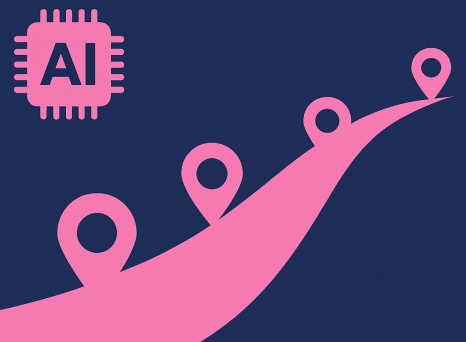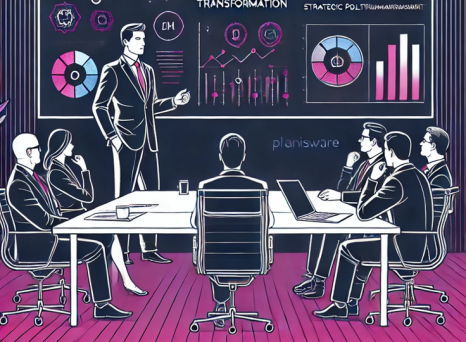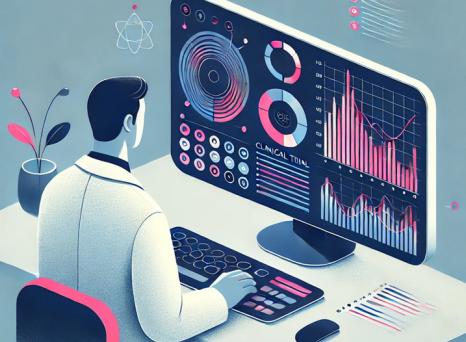Ayanna Howard, in her article ‘Human Diversity Will Save Your Job from the Robot Takeover' speaks eloquently about the move towards one form of the oft feared ‘robot' takeover of our world ‘Robots have long been celebrated as ideally situated to take over society's most dirty, dull, and dangerous jobs, from robot vacuum cleaners (dirty) to manufacturing robots (dull) to military robots (dangerous). All those roles, of course, were at one point held by people, and people in those functions will continue to be replaced by robots.'
We don't seem to be particularly afraid of the technology helpers we engage with on a day-to-day basis. We adapt and adopt fast when new tech arrives, as is indicated in the sample list above. I personally, love my RoboVac and how it automatically navigates the house and keeps the floors clean.
Ayanna further states that there will be an expansion of this robotic deployment, ‘Jobs that classically don't fit into the “three D's” work category — dirty, dull, and dangerous — are also being eyed as opportunities for robot workers. Many roles are being reimagined and redefined, with technology substituting for human power'.
But does that expansion of use threaten project management in any way?
AI, Project Managers, and the value of Process
In a recent Planisware webinar attendees noted how they generally felt about AI, and it was clear that most had no issue at all with the potential impact of artificial intelligence. 47% were ‘excited', 35% ‘cautious' and 5% ‘neutral, only 13% had any form of concern or worry.
Not only were most respondents on the positive side of the equation it was also felt that there was a wide consideration of where ‘machine' could aid project managers in the future.
This offers up a more realistic future of an alignment, or partnership, between ‘man and machine', but it seems that it is not simply a matter of human's harnessing the power of AI but there is a third element that will provide the significant advantage that we really aspire to achieve.
In a fascinating article ‘AI Should Augment Human Intelligence, Not Replace It' by David De Cremer and Garry Kasparov (yes, the chess grandmaster who lost a famous rematch between himself and IBM's Deep Blue in 1997 - Gary won the first match in 1996).
After losing to IBM's Deep Blue, he began to experiment how a computer helper changed players' competitive advantage in high-level chess games. What he discovered was that having the best players and the best program was less a predictor of success than having a good process. Put simply, “Weak human + machine + better process was superior to a strong computer alone and, more remarkably, superior to a strong human + machine + inferior process.'
It seems that we project managers will gain the most advantage by combining AI into our methodologies and project processes.
The above article notes ‘Augmented intelligence, as the third type of AI, is the step forward to the future of intelligent work. The future of work is a concept used to indicate the growth of employees and their performance in more efficient ways.'
Join the Digital Dance
Spotify's Sidney Madison Prescott, Global Head of Intelligent Process Automation, proposed the fascinating concept of ‘Digital Dancing' in an interview, Choreographing Human-Machine Collaboration.
‘… a collaborative dance, between the machine and the human. And I think this is wonderful, because what it enables us to do is look at the ways that humans flourish in relation to their cognitive capabilities, and then the ways that machines can basically help enable humans in the areas where we are not as strong, with large populations of data being able to quickly assess deltas in that data — being able to see patterns in millions of rows of data. These are the areas where AI can really flourish for us, AI/machine learning. The more cognitive functions where maybe a decision needs to be made off that data, that's where the humans can come back in and pick up that work. I call it human, really, augmentation of humans, at the end of the day. And the goal would be maximizing our potential as humans.'
This idea I truly support. Let both parties to this dance bring their very best moves.
Within the list of capabilities AI can bring to the table, we have speed, analysis, insight, objectivity, tireless reliability, and rapid prediction. Notice how these are often the skills where humans tend to falter and therefore, bringing this extra hand into the equation will be an invaluable aid.
As an example , from the world of healthcare ‘AI-enabled virtual assistants are reducing unnecessary hospital visits and giving nurses 20% of their time back in the process; workflow assistants are helping doctors free up 17% of their schedules; pharmaceutical companies are researching lifesaving medicines in a fraction of the time and cost it traditionally takes…'
Another example is how an Asian Pacific retailer was using AI to optimize store space and inventory placement. In the end, an unexpected benefit from the AI tool is that it aided with collaboration between both the merchandiser (who determined how items would be displayed in stores) and buyers (who chose the range of products). The result was that gross margins on each product category that had applied the tool increased by 4% to 7%.
Project management is just beginning to enter this ‘dance' with many tech providers investing heavily in AI augmentation (for example, the Planisware Enterprise chatbot assistant seen in the video below, aids with real time progress updates cutting the time wasted by managers on assessing how certain projects are performing within teams) but there is one thing that cannot be forgotten, and that is the ‘people' aspect of what projects and project leadership is all about.
Planisware Chatbot: A brief demonstration. Request and update information directly through chat.
Marc Lahmann: Partner and Leader Transformation Assurance, PwC Switzerland well noted in the article ‘AI will transform project management. Are you ready?' -
‘AI will undoubtedly change how projects are delivered and how project management as a practice will evolve. In the midst of this evolution, it is important to remember that there is something AI cannot do – be human. This means that project managers will also stay relevant in the age of AI if they focus on the core skills of project management and progressively move into work that emphasises human skills.'
It comes back to the adoption of Augmented Intelligence to the work of a project manager, built on great processes, and leading inspired people to future project successes.
As stated by Michael Moran and Alexandra Grasset in the blog ‘Link roundup: Artificial Intelligence' ‘Machines are often introduced as the new super employee, and this is true to a certain extent. Their ability to eliminate repetitive tasks will be welcome news to many but this is not a “set it and forget it” system. AI is built on pillars of rigorous preparation and a clear strategy which will require commitment from every level of the organization.'
Discover more about the rise of AI and how it will change the project world
Check out my recent webinar to learn all you need to know about Artificial Intelligence and what this will offer your profession in the coming years.
We explored the history of AI and considered why AI is both brilliant and stupid at the same time.
We looked at the four categories of AI that apply to our world of project management – project management process automation, project assistant style chatbots, project intelligence through machine learning, and the future state of the autonomous project manager.
This webinar will offer you a better understanding of the state of AI in project management and help you be able to ask the really important questions of yourself, and your organisation, that need asking in order to be truly ready for the revolution in project management.


